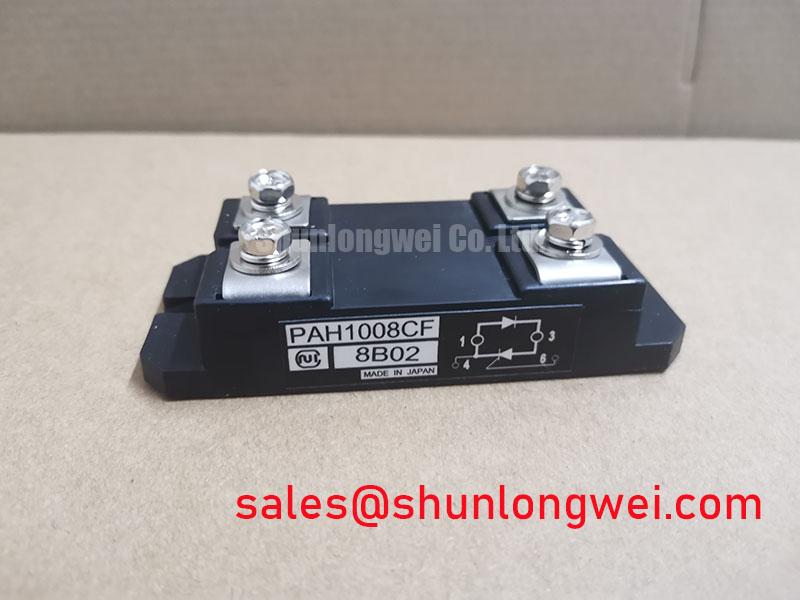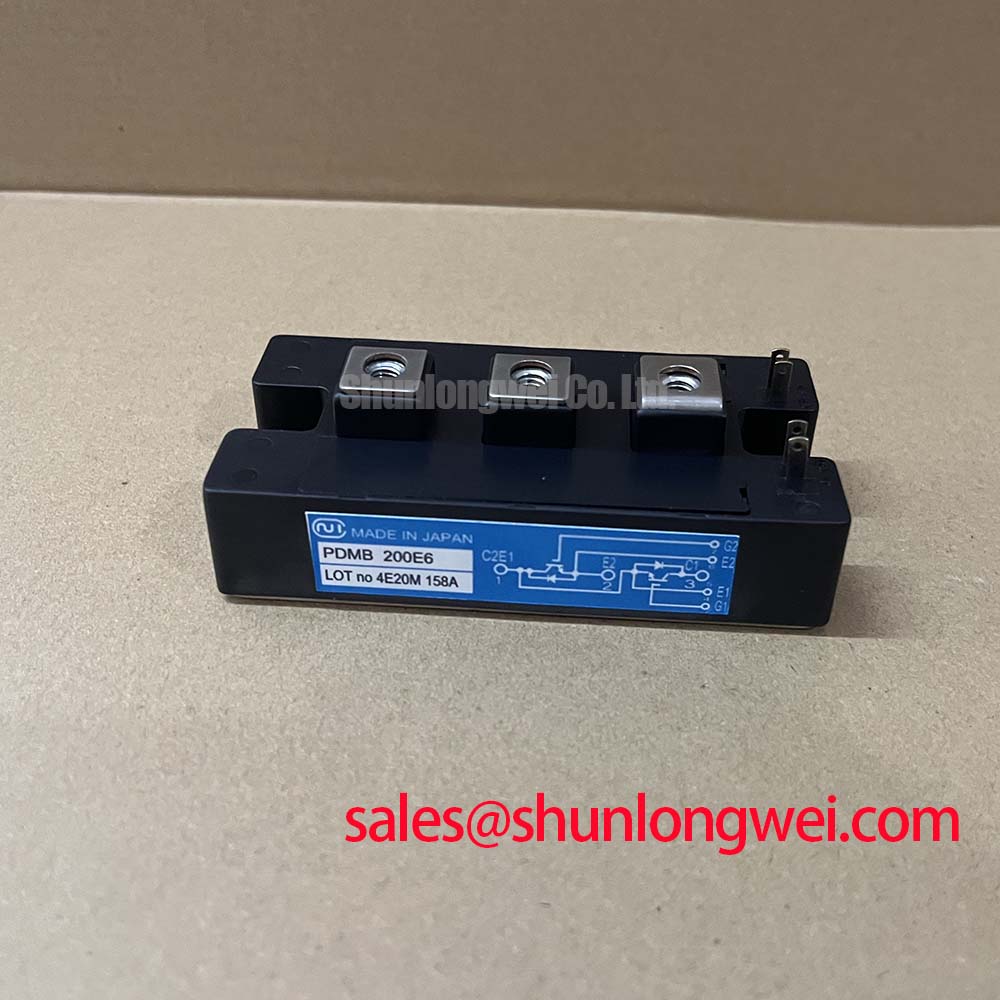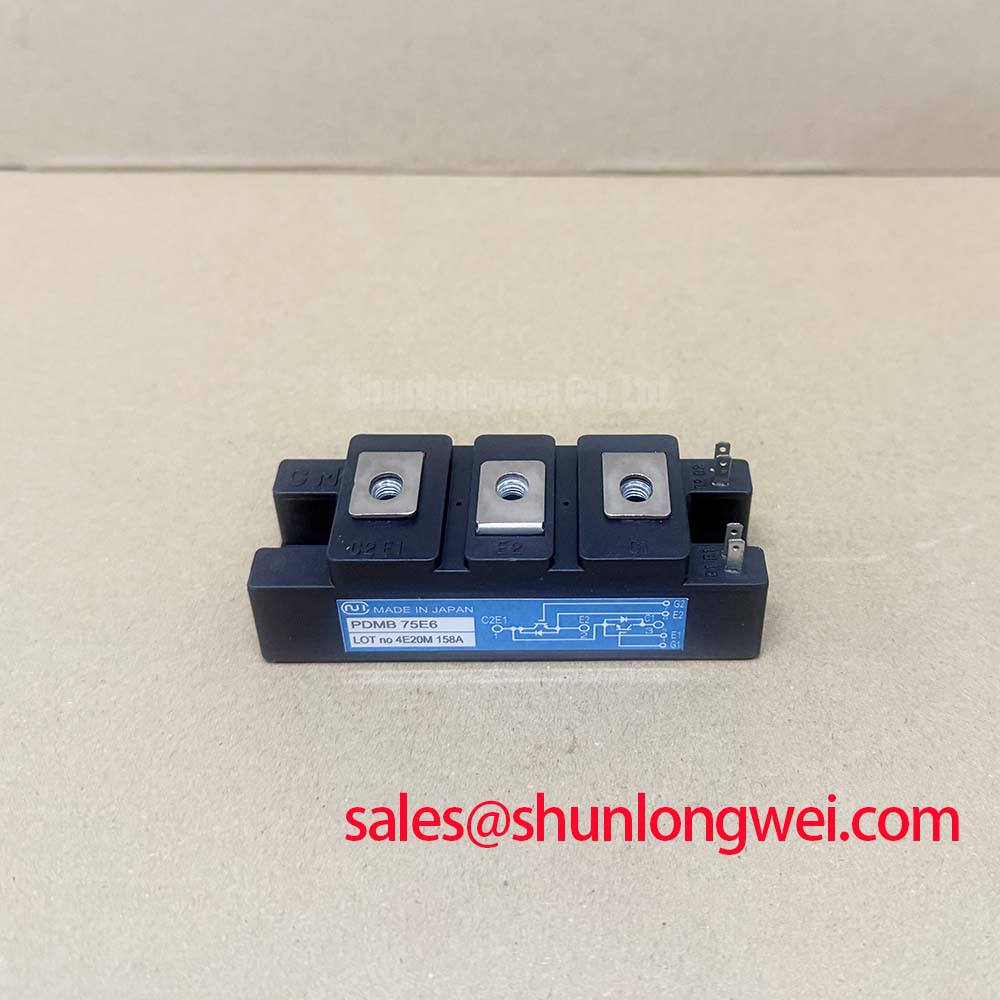Content last revised on November 13, 2025
Fuji Electric PDMB300E6C | 600V 300A PIM for High-Reliability Motor Drives
The Fuji Electric PDMB300E6C is an expertly engineered Power Integrated Module (PIM) designed to streamline and enhance the performance of three-phase power conversion systems. By integrating a full three-phase inverter bridge with a brake chopper circuit into a single, thermally efficient package, this module provides a robust foundation for compact and reliable motor control applications.
- Highly Integrated 7-in-1 Design: Features six IGBTs with corresponding free-wheeling diodes for the inverter stage and an additional IGBT/FWD pair for the brake chopper, significantly reducing system complexity and component count.
- Robust Power Ratings: With a collector-emitter voltage (Vces) of 600V and a continuous collector current (Ic) of 300A, the PDMB300E6C is built to handle demanding medium-power industrial applications.
- Optimized for Motor Control: The module's characteristics are tailored for the switching frequencies typical in Variable Frequency Drives (VFDs) and servo systems, balancing conduction and switching losses for superior efficiency.
- Enhanced Thermal Performance: Built on an isolated baseplate, it ensures excellent heat dissipation, a critical factor for long-term reliability and stable operation under heavy loads.
Key Technical Specifications
Engineers require precise data for system design and simulation. The following table highlights the critical parameters of the PDMB300E6C. For a comprehensive overview, you can download the official datasheet.
| Parameter | Value |
|---|---|
| Max Collector-Emitter Voltage (Vces) | 600V |
| Continuous Collector Current (Ic) at Tc=80°C | 300A |
| Collector-Emitter Saturation Voltage (Vce(sat)) at Ic=300A | 2.0V (Typ.) / 2.5V (Max.) |
| Total Power Dissipation (Pc) per IGBT | 1040W |
| Max Operating Junction Temperature (Tj) | 150°C |
Core Application Areas and Engineering Value
The PDMB300E6C excels in applications where integration, reliability, and performance are paramount. Its design directly addresses common engineering challenges in power electronics.
- Variable Frequency Drives (VFDs): The integrated brake chopper is a key advantage, simplifying the implementation of regenerative braking circuits. This allows for controlled deceleration of high-inertia loads by dissipating energy through a dynamic braking resistor, a common requirement in Variable Frequency Drive (VFD) systems.
- Industrial Servo Drives: In precision motion control, power density and reliability are crucial. The compact footprint of the Fuji Electric PDMB300E6C allows for smaller drive enclosures, while the reduced internal connections enhance system robustness compared to discrete solutions.
- General-Purpose Inverters & UPS: For applications like uninterruptible power supplies (UPS) and industrial power converters, the module’s all-in-one architecture simplifies the bill of materials (BOM), accelerates assembly, and minimizes potential points of failure.
Technical Deep Dive: The PIM Advantage
The Power of 7-in-1 Integration
The primary value of the PDMB300E6C lies in its PIM architecture. By co-packaging the inverter and brake chopper, Fuji Electric has minimized the parasitic stray inductance between components. This is a critical engineering benefit that reduces voltage overshoots during high-speed switching events, leading to lower EMI, improved reliability, and potentially simpler snubber circuit design. This integration is a fundamental concept in modern IGBT modules designed for compact power systems.
Balanced Performance for Motor Drives
The IGBTs within this module are designed to offer a careful balance between low conduction losses and controlled switching speeds. A balanced VCE(sat) ensures minimal power dissipation when the device is fully on, which is the dominant state in lower-frequency motor control. Simultaneously, the switching characteristics are optimized to reduce losses during the turn-on and turn-off transitions without generating excessive electromagnetic noise.
Frequently Asked Engineering Questions
1. What are the main benefits of using this PIM over discrete IGBTs?Using the PDMB300E6C over a discrete solution offers several key advantages: a significantly smaller PCB footprint, simplified thermal management (one heatsink interface), lower assembly costs, and inherently better reliability due to fewer solder joints and optimized internal layouts that minimize stray inductance and ensure current sharing.
2. What are the key considerations for the gate drive design?A robust gate drive circuit is critical. Key considerations include providing a stable +15V for turn-on and a negative voltage (e.g., -5V to -10V) for a firm turn-off to prevent parasitic turn-on. The gate driver must have sufficient peak current capability to charge and discharge the IGBT's input capacitance quickly, minimizing switching losses. For more in-depth guidance, check out our guide on 5 practical tips for robust IGBT gate drive design.
For detailed application support or to discuss your specific design requirements for the Fuji Electric PDMB300E6C, please contact our technical team.













